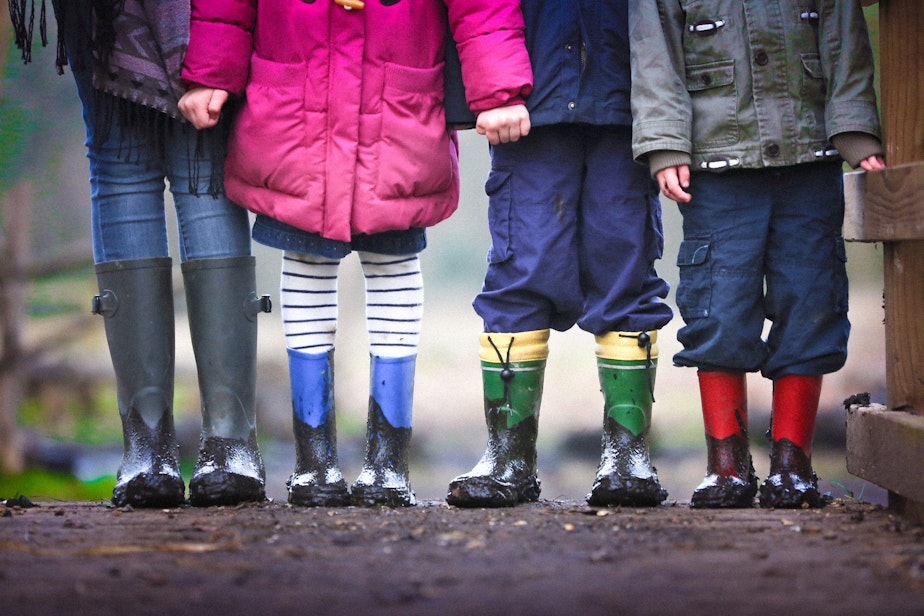Covetiquette: What to do with children during the Covid-19 pandemic

KUOW reached out to readers and listeners about common concerns, questions, pet peeves, and other issues that have emerged during the Covid-19 pandemic.
In this installment, we focus on kids.
The issue of kids and the coronavirus is perhaps the most common topic we have heard about. It certainly provokes a lot of passion.
Full disclosure, I do not have children (I know that is the first question that parents ask when talking about kids). But from what my friends with kids frequently tell me, I know two things are certain: I frighten children; and also, being a parent is hard. And under pandemic conditions, it's a lot harder.
To navigate this topic, we will address some issues presented by readers, and draw from KUOW's reporting and some experts.
Neighborhood kids
When I'm walking around my neighborhood, staying away from others on the street, I keep noticing children from different households congregating, playing together, and not staying an appropriate distance from others, including people walking by.
Dr. Danielle Zerr with Seattle Children's Hospital told KUOW that it is best to try and limit all interactions. This includes kids, which appear to be less-affected by Covid-19. That doesn't mean they can't spread it.
"This is such a difficult situation as children need to play," Zerr said. "At this point, I think people should be trying to adhere to social distancing. If that’s really not workable, limiting contact with a small number of other people, avoiding contact if anyone has symptoms, and spending time together outdoors will mitigate risk."
People under the age of 19 only add up to about 4% of cases in Washington. But don’t think this virus cannot affect children – it can. In fact, a rare disease found in children, which is associated with Covid-19, has already started popping up in the Seattle area.
Zerr notes that we don’t know if kids become infected at a lower rate or are tested less. Perhaps their illness is less severe. Studies suggest they are less symptomatic, or are infected as much as adults. There may be other factors scientists have not yet discovered. There is a lot about kids we just don't know.
"The fact that they can get infected and they have detectable virus in their nose would suggest that they can spread it like anyone else," she said.
Children and grocery stores
Can I take my kids into the grocery store with me?
Of course you can take your kid to the store. Be safe like everyone else – wear a mask (which is now a requirement in Seattle and King County). In general, I'd say this calls for two things: understanding and responsibility.
People need to understand that nannies and childcare aren’t really things right now. Everyone has to eat and parents don't always have a safe place to put their children. So into the store we all go.
That's the understanding part. Let's talk about responsibility. Parents need to keep their kids close.
In the early weeks of the pandemic in Washington, people ages 60 and above constituted more than 30% of all cases, and 91% of deaths. Clearly, the older population is more at risk. And children could often be asymptomatic as they are walking around. So kids also should practice social distancing.
Different parenting styles
My family practices social distancing, and when my child was in our yard, a passing neighbor let their kid walk straight up to mine and get face-to-face with them.
Not cool. Everybody parents in their own way, but letting your kid mingle with other kids without a parent’s permission is not only careless, it’s just rude.
It's sort of like how my parents did not let me watch rated R movies when I was a child. So ... I went over to my friend Nick's house. His parents didn't care what we watched. And my parents were none the wiser. That is, until later that night when I woke up thinking an alien was popping out of my chest.
One parent did not respect the other, and there were consequences.
If you work things out with other parents, that’s between you. But don’t just assume.
Check out KUOW's YouTube page for more covetiquette columns and other fun videos. Feel free to leave a comment on the video. We may use it in a future covetiquette column.

